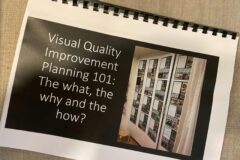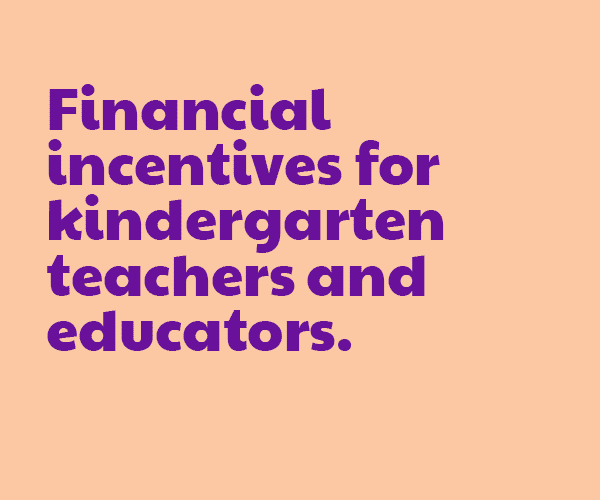The four skills a leader needs to develop the most – and how they shape your ECEC role

Whether it’s stepping up to lead a room, taking on the role of educational leader, stepping in to lead a service, or even branching out into an area manager or operations role, leadership opportunities are abundant in the early childhood education and care (ECEC) sector.
Regardless of the type of leadership role, there are four core skills that leaders can cultivate to support their own professional development, and guide the progress of those in their care.
Empathy
Sympathy says “oh, that’s awful” from a safe distance. Empathy says “that sucks, and I know just how it feels. Let me get in there with you.”
When taking on a leadership role, it’s very easy to get lost in the deliverables – have all the checklists been completed? Did the QIP get updated? Those windows are dirty, and we have a parent coming through on a tour…
Once deliverables are the focus, the people responsible for getting things done can feel pushed aside. While performance and deliverables matter, there’s numerous pieces of research that show the happiest employees are the most productive ones.
By taking a moment to tune in to your team, and checking in about how they are feeling in their roles, leaders develop a deeper understanding of how their team best functions, and know when to push and when to yield.
In an environment where employees are feeling stressed, they tend to focus on what will go wrong if they don’t do their job well. By finding ways to focus on the positive and satisfying aspects of their roles, employees will be happier and more productive.
Meaningful feedback
One thing that many new leaders struggle with is giving feedback to others – particularly negative feedback.
While giving feedback can be challenging – after all, most of us like to be liked by others – it is an important part of leadership, and one which is essential to keep teams performing well.
One common error that ECEC leaders make when giving negative feedback is to “talk around the problem” rather than stating the issue clearly.
To overcome this, try the “XYZ” method: “Situtation X happened. Your response was Y. In the future, please do Z.”
An example:
Molly’s mum is angry because Molly’s picture has appeared in a social media post, and she believed she had not been asked for permission.
Molly’s mum ticked the permission box on enrolment, but had forgotten this part. She confronted one of the educators at close who said “oh no, we only put the kids with the ticks. I’m sure it’s not anything we did.”
In responding, the leader might say something like:
“Molly’s Mum wasn’t aware that she’d ticked the relevant box, and felt like she wasn’t listened to, and her worries weren’t a priority. Your response was to defend yourself and the team, which was understandable. In future, could you please make sure you apologise, work through the solution together, and follow up with me as the leader, so I can check in with parents with concerns?”
Being willing to learn
Leaders are often moved to positions of leadership because of their capacity to complete their work to a high standard. Leadership, however, is much more than competence, and is often much more about managing people than it is managing tasks.
When moving into a leadership role, you often find out a lot more about what happens “behind the scenes”, and will likely be pulled into situations which you haven’t encountered before.
It’s very likely that people will ask you questions you don’t know the answer to, or have never had to think about before.
For these reasons, and many more, one of the most important things you can do as a leader is to always be willing to learn. Whether it’s TED talks, books, critical friendships, mentoring relationships or formal professional development, the best leaders are those who know they don’t know it all.
Dealing with pushback
One of the most challenging things for many leaders is dealing with ‘pushback’ or other people disagreeing with your decisions. Often, inexperienced (and experienced!) managers will take this as a signal that they should “double down” on their commitment to a decision and will hold their ground.
While that reflex reaction is understandable, it’s actually really helpful to have people around you who will provide constructive challenges to your ideas and decisions. These individuals have other perspectives and values from you, and so they are expanding the range of information that you are forced to consider as you move forward with a choice.
Even if the ultimate outcome is to go ahead without changing your original plan, being willing to listen to others and engage openly will support your team to view you as a considerate leader who takes their needs into account.
Unfortunately those leaders who get defensive when they are challenged end up with teams who are less likely to express their opinions and share their ideas, which is unfortunate because multiple perspectives lead to winning outcomes.
If, as a leader, you start to feel challenged by someone’s critique, take a deep breath and consider before responding.
For more tips on effective leadership in ECEC, check out this resource, from ACECQA.
Popular

Provider
Jobs News
Policy
Workforce
Petit ELJ introduces new pay framework designed to reward qualified educators
2024-04-04 08:44:37
by Freya Lucas

Jobs News
Workforce
Workplace gossip isn’t just idle chatter. It’s a valuable – but risky – way to build relationships
2024-04-09 00:29:07
by Freya Lucas

Jobs News
Quality
Workforce
The learning and development opportunities early educators need in 2024
2024-04-05 08:17:41
by Freya Lucas















